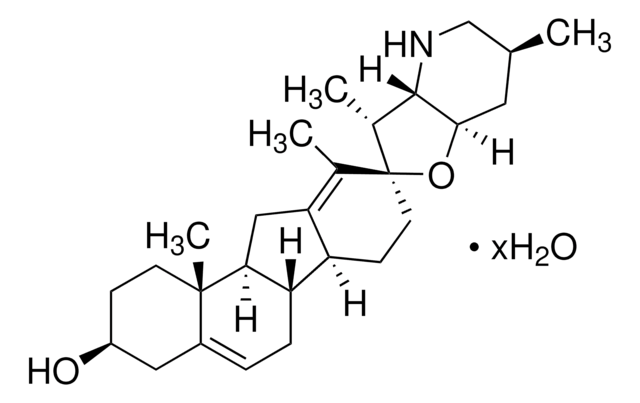R2650
Monoclonal Anti-Rac antibody produced in mouse
clone 23A8, purified immunoglobulin, buffered aqueous solution
About This Item
Recommended Products
biological source
mouse
Quality Level
conjugate
unconjugated
antibody form
purified immunoglobulin
antibody product type
primary antibodies
clone
23A8, monoclonal
form
buffered aqueous solution
mol wt
antigen 21 kDa
species reactivity
rat, human, mouse
technique(s)
immunohistochemistry (frozen sections): suitable
immunoprecipitation (IP): suitable
western blot: 0.5-2.0 μg/mL using rat brain microsomal protein preparation
isotype
IgG
UniProt accession no.
shipped in
dry ice
storage temp.
−20°C
target post-translational modification
unmodified
Gene Information
human ... ARHGEF6(9459)
mouse ... Arhgef6(73341)
rat ... Arhgef6(363509)
Specificity
Immunogen
Physical form
Preparation Note
Disclaimer
Not finding the right product?
Try our Product Selector Tool.
Storage Class Code
10 - Combustible liquids
WGK
WGK 1
Flash Point(F)
Not applicable
Flash Point(C)
Not applicable
Certificates of Analysis (COA)
Search for Certificates of Analysis (COA) by entering the products Lot/Batch Number. Lot and Batch Numbers can be found on a product’s label following the words ‘Lot’ or ‘Batch’.
Already Own This Product?
Find documentation for the products that you have recently purchased in the Document Library.
Our team of scientists has experience in all areas of research including Life Science, Material Science, Chemical Synthesis, Chromatography, Analytical and many others.
Contact Technical Service




